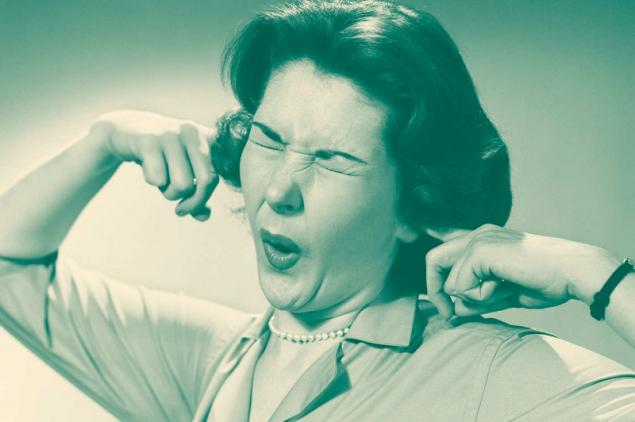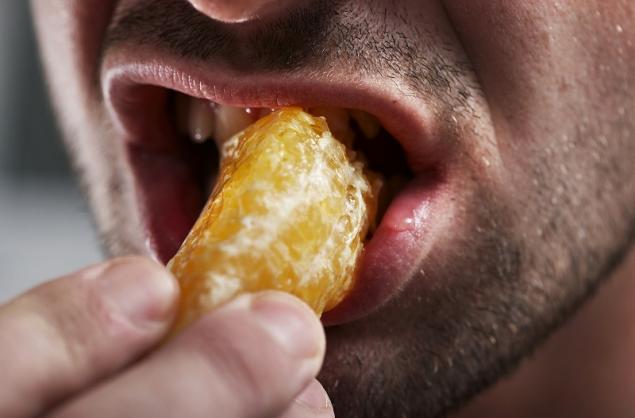153
A newly discovered disease is driving humanity crazy! That's why you hate chewing around.
No one seems to enjoy listening to a chuckle next to a chewing neighbor. For most, this situation gives only minor discomfort, which instantly passes. However, there are people who get really furious from the seemingly simple noise. And this is not ordinary irritation, this is real. loathing.

Today. "Site" He will tell you about misophonia, a disease that breaks the rhythm of life of millions of people.
Irritating sounds misophonia A form of intolerance to sounds, which is a real neurological disorder. Negative experiences make misophonists feel real rage. So, hearing the cry of an infant, the sound of nail circumcision, loud chewing or heavy breathing, a misophonia sufferer begins to experience an aggravating and deep feeling of discomfort, which develops into a fit of rage and anger.
The most familiar sounds, which most people do not even pay attention to, can make the situation extremely tense. Here they are, misophonia triggers.

Sound intolerance It comes in childhood or during puberty. Patients almost always with accuracy to the day can call the time of the onset of the disease. For example, on the next bed with the boy slept cold brother, whose breathing was so heavy and sticky that he could not sleep. Since then, the boy can not stand when someone breathes loudly.

Often misophonics suffer not only from their disease, but also from the frivolous attitude of others. If the sound doesn't annoy you, why should it annoy someone else? This self-centered attitude aggravates the daily life of misophonists much more. They cannot eat in the family circle, do not go to cinemas, do not go to coffee shops, do not ride public transport and often sleep alone.

It is difficult for an ordinary person to understand how misophonics feel. Under the influence of stimuli, they experience not just anger, they are covered by a real tsunami. In severe cases, such people simply cannot resist. For example, in one of the parking lots, a 13-year-old girl could no longer bear the sound of her mother’s voice, so she tried to break the car window to get a shovel and kill her mother.

A recent study of this pathology showed that the problem lies in the internal perception of sounds. In other words, in misophonics, the islet and medial prefrontal region of the cortex of the large hemispheres are more easily activated than in other people. Clearer and more powerful signaling provokes the manifestation of negative emotions such as anger and rage.

There's no cure for misophonia. Some doctors recommend patients to consult a psychiatrist, others attract alternative medicine. Sound therapyIt helps in part to deal with the problem. Patients are placed in the ears of a special device that creates a constant noise background. So, for example, someone can not stand the quiet sound of nail cutting, but in a noisy dining room feels comfortable. It is the hum of the dining room and put in the ears of the patient.
Tom Griffiths, a professor of cognitive neurophysiology at Newcastle University, uses precisely directed electrical discharges to treat misophonia. As you know, they can affect the functioning of the brain. “By investigating the mechanisms of brain control in patients with misophonia, we have gathered enough data to understand and describe the disease,” he concludes.

Let us treat misophonia sufferers with understanding and respect! Well, if you were interested in this informative article, share it with friends in social networks.

Today. "Site" He will tell you about misophonia, a disease that breaks the rhythm of life of millions of people.
Irritating sounds misophonia A form of intolerance to sounds, which is a real neurological disorder. Negative experiences make misophonists feel real rage. So, hearing the cry of an infant, the sound of nail circumcision, loud chewing or heavy breathing, a misophonia sufferer begins to experience an aggravating and deep feeling of discomfort, which develops into a fit of rage and anger.
The most familiar sounds, which most people do not even pay attention to, can make the situation extremely tense. Here they are, misophonia triggers.

Sound intolerance It comes in childhood or during puberty. Patients almost always with accuracy to the day can call the time of the onset of the disease. For example, on the next bed with the boy slept cold brother, whose breathing was so heavy and sticky that he could not sleep. Since then, the boy can not stand when someone breathes loudly.

Often misophonics suffer not only from their disease, but also from the frivolous attitude of others. If the sound doesn't annoy you, why should it annoy someone else? This self-centered attitude aggravates the daily life of misophonists much more. They cannot eat in the family circle, do not go to cinemas, do not go to coffee shops, do not ride public transport and often sleep alone.

It is difficult for an ordinary person to understand how misophonics feel. Under the influence of stimuli, they experience not just anger, they are covered by a real tsunami. In severe cases, such people simply cannot resist. For example, in one of the parking lots, a 13-year-old girl could no longer bear the sound of her mother’s voice, so she tried to break the car window to get a shovel and kill her mother.

A recent study of this pathology showed that the problem lies in the internal perception of sounds. In other words, in misophonics, the islet and medial prefrontal region of the cortex of the large hemispheres are more easily activated than in other people. Clearer and more powerful signaling provokes the manifestation of negative emotions such as anger and rage.

There's no cure for misophonia. Some doctors recommend patients to consult a psychiatrist, others attract alternative medicine. Sound therapyIt helps in part to deal with the problem. Patients are placed in the ears of a special device that creates a constant noise background. So, for example, someone can not stand the quiet sound of nail cutting, but in a noisy dining room feels comfortable. It is the hum of the dining room and put in the ears of the patient.
Tom Griffiths, a professor of cognitive neurophysiology at Newcastle University, uses precisely directed electrical discharges to treat misophonia. As you know, they can affect the functioning of the brain. “By investigating the mechanisms of brain control in patients with misophonia, we have gathered enough data to understand and describe the disease,” he concludes.

Let us treat misophonia sufferers with understanding and respect! Well, if you were interested in this informative article, share it with friends in social networks.
How to prepare alkaline water
Dmitry Kogan managed to give people beautiful music! I listen all day and my soul cries.























